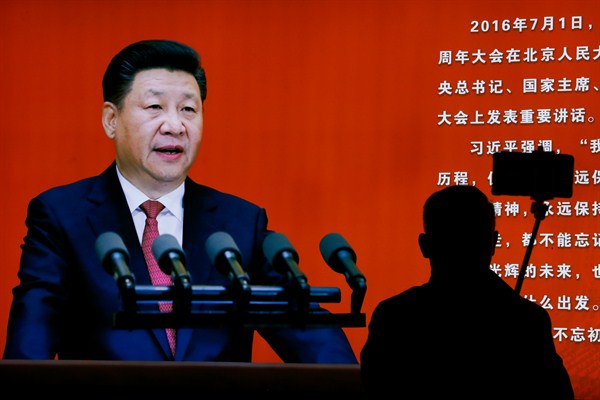Standing at about 6 feet tall, Chinese President Xi Jinping cuts an imposing figure, especially compared to the famously diminutive Deng Xiaoping, the transformative leader who, after Mao Zedong’s death in 1976, guided China through monumental reforms from 1978 until his formal retirement in 1989. Xi’s baritone and precise Mandarin, surprisingly uncommon for former top Chinese leaders, projects added self-assuredness and gravitas. This aura of confidence seems only appropriate for someone of Xi’s political stock: a princeling descended from communist revolutionaries who were present at the creation of modern China under Mao.
Perhaps that is why many commentators have deigned Xi a Maoist, pointing out that he has created a cult of personality and abandoned the collective leadership model of rule by consensus that has characterized the Chinese Communist Party (CCP) since Deng’s days. While Xi has certainly amassed significant political power—and is perhaps now the strongest leader since Deng—such comparisons are overwrought and largely inaccurate. Xi is no revolutionary like Mao, and in fact, hews closer to Deng’s vision of China’s future than he is usually given credit for.
Like Deng, Xi is audaciously pursuing a platform that can be simply distilled as “Make China Great Again.” This isn’t some Trumpian sloganeering or an attempt to fabricate a dystopian vision of the current state of the nation or an imagined past. Instead, Xi is an earnest disciple in a continuous line of leaders who sought to recapture the greatness of China that many inside the CCP believe had been stifled over the past two centuries. Put another way, Xi wants to shepherd a Chinese renaissance to regain the “wealth and power” that, according to scholars Orville Schell and John Delury, once defined China’s status in the world.

